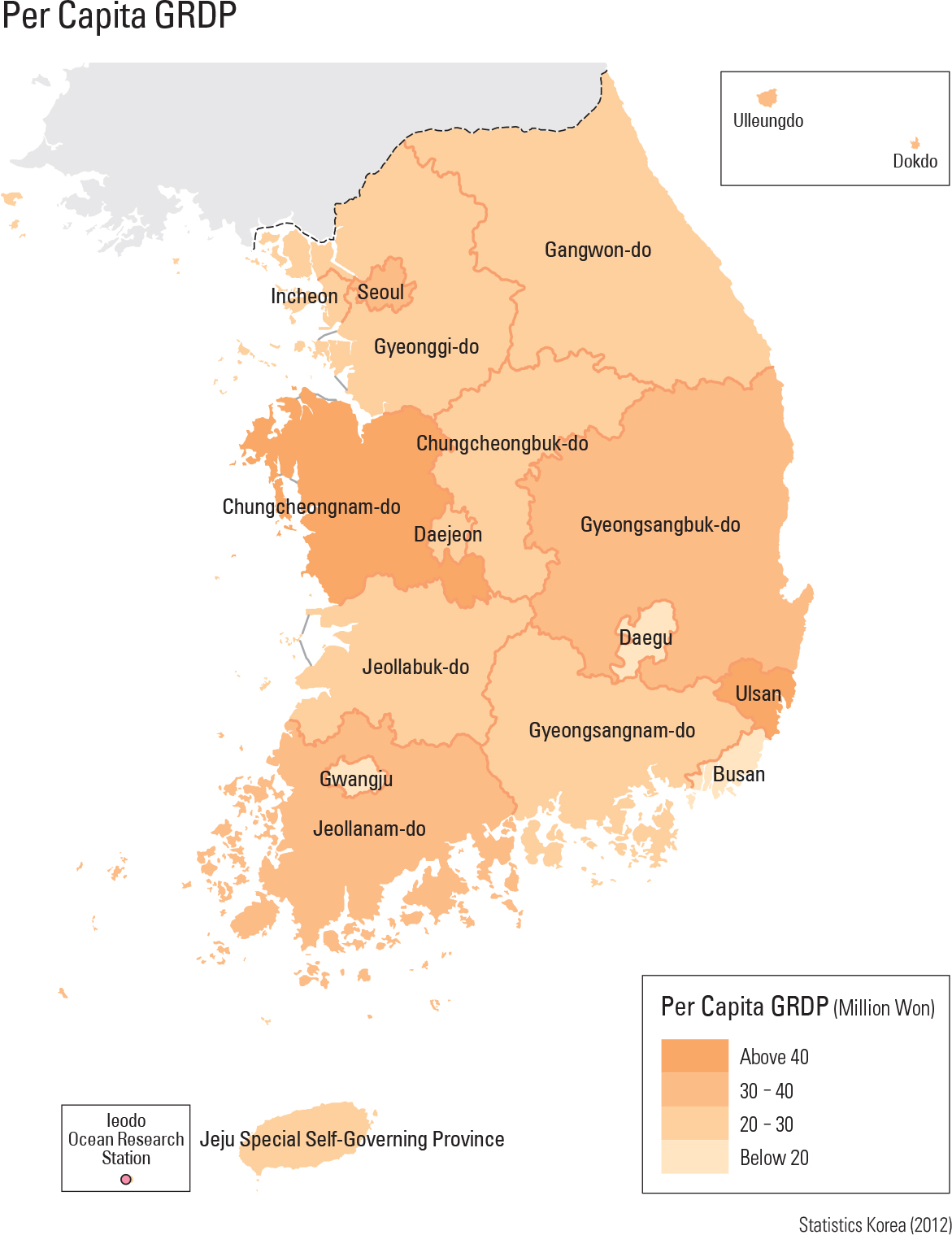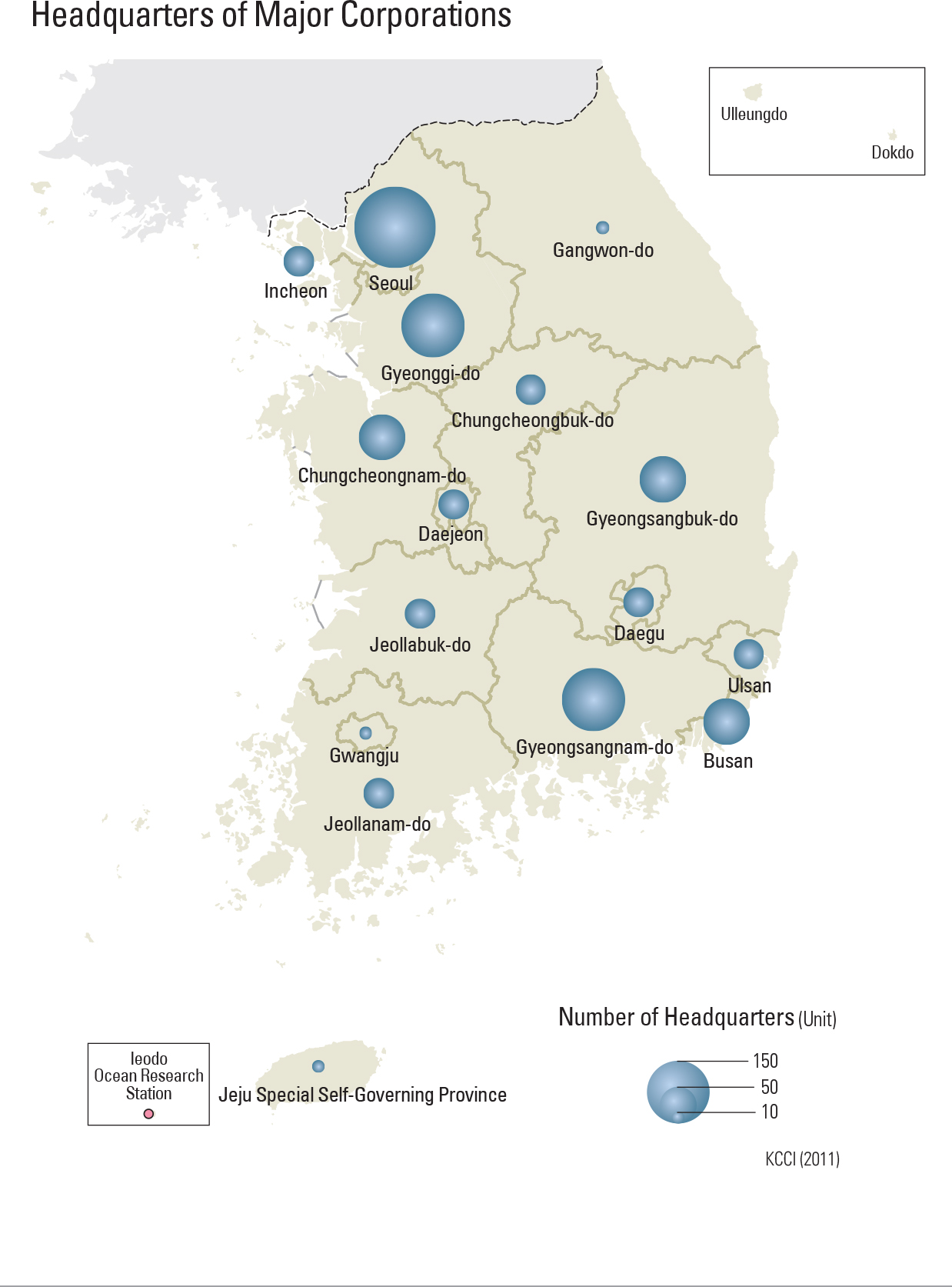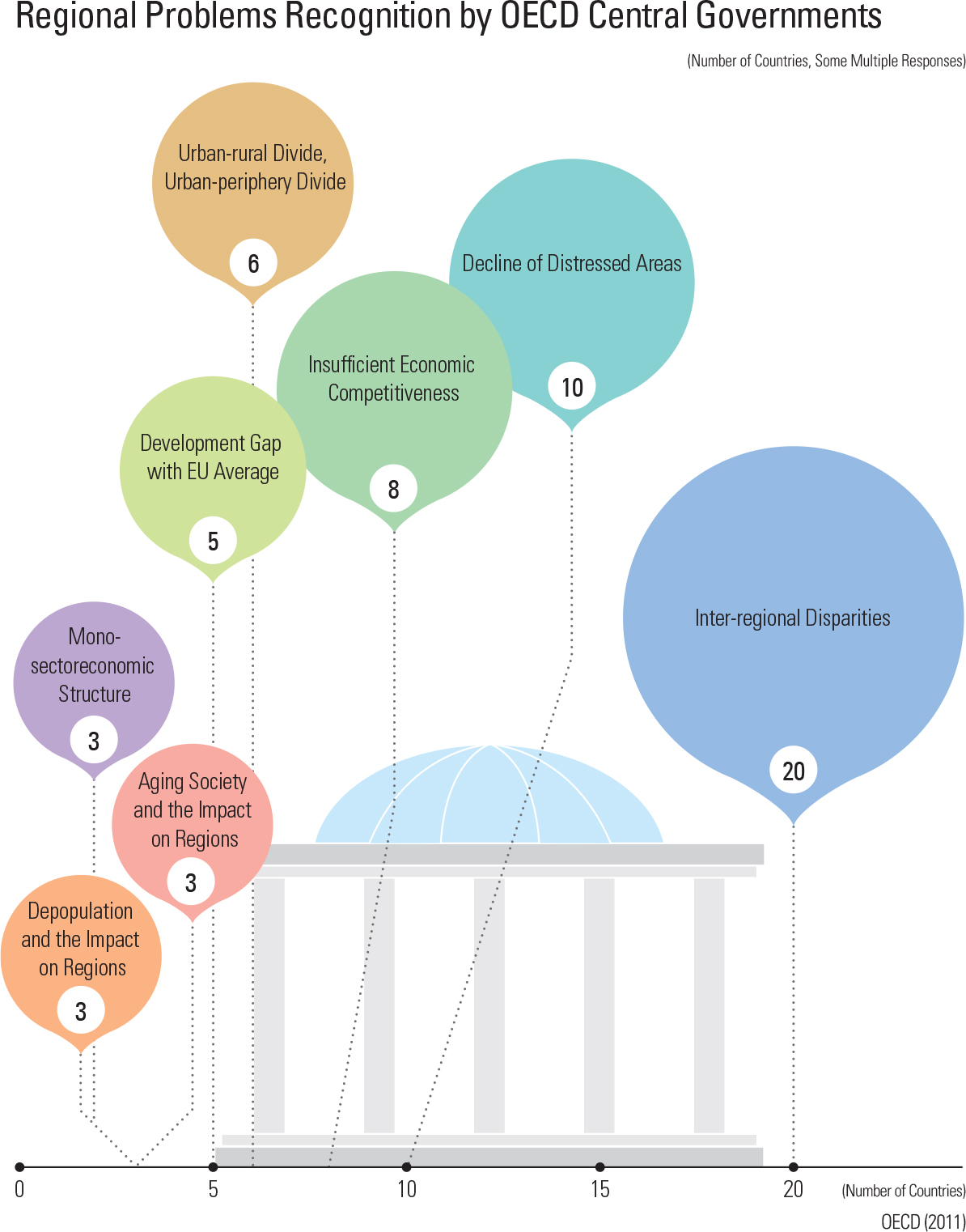The goal of regional development is to foster activities and outcomes that promote economic growth and to build foundations that will improve the quality of life for residents in the region. The stakeholders of each region are the businesses and residents themselves who would ideally participate in key regional development activities.
The scope of regional development varies, but generally it is enacted at the sub-national level, by way of local self-governing bodies. Recently, however, as new approaches emphasize the quality of life and the socioeconomic reality beyond the existing administrative boundaries, more function-oriented regionally based development approaches are being brought into play. In general, the role of both the central and local governments in regional development is very significant. Under a market economy, both structural dynamics and uneven distribution of benefits including natural endowments inevitably cause spatial disparity in regional development; therefore, a government policy intervention to fix this spatial disparity is often deemed necessary. Accordingly, the central government’s policy efforts on regional development have been carried out for a long time at various levels of government. Like other countries in the Organization for Economic Cooperation and Development (OECD), the regional development policy in Korea has focused on lessening regional disparity through improving backward areas. The rapid modernization process since the 1960s brought about remarkable economic growth and material abundance, but it has also caused many serious problems not the least of which includes the ever-increasing disparity of both economic power and quality of life between different regions. In order to solve such problems, the Korean government has promoted various developmental policy options for backward areas and has shifted its policy focus from infrastructure investments such as enterprise relocation and expansion of the economic growth base to making the quality of residents’ lives a higher priority.
In spite of the many policies and financial investments that have targeted regional disparity thus far, the problem of spatial dualism in Korea between the capital region and provincial regions and between urban and rural areas still remains quite serious. In addition, as changes in regional development occur, issues such as economic globalization, deepening inter-regional competition, and the demand for greater local autonomy further complicate the development process. The pursuit and promotion of more effective regional development policies are now more necessary than ever. In this current context, there has been a policy paradigm shift toward solving the real problems of both regions and their residents by creating decent jobs within the region, by promoting living conditions that foster the enjoyment of social and cultural benefits, and by ensuring that the basic welfare of the people is protected and nourished.


